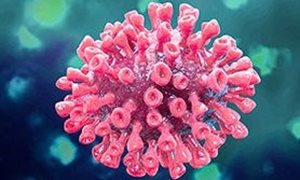16 January 2018

Combining the existing exome and genome patient data of all collaborators of SOLVE-RD greatly increases the chances of finding a second or a third patient with the same rare disease. The commitment for sharing data on rare diseases on this scale is unique.
Han Brunner (co-coordinator of SOLVE-RD): "It is a unique emphasis that so many researchers share so much data of so many rare disease patients to boost novel discoveries. Via the involved ERNs we assemble a lot of the rare disease experts from all over Europe."
Alexander Hoischen (workpackage leader SOLVE-RD): "It is exciting to explore the best tests for patients with rare diseases. The human genetic department of the Radboud university center in Nijmegen has always been at the forefront of translating latest genomic tools from research towards diagnostics. With this consortium we can continue to do so with many valued European partners."
Read here an interview that Alexander Hoischen gave to GenomeWeb about SOLVE-RD.
SOLVE-RD: link
H2020 program: link
ERNs:
- Europa networks: link
- Eurordis: link
 A large consortium led by the University of Tübingen, the Radboud university medical center Nijmegen and the University of Leicester has acquired a € 15 million grant for the SOLVE-RD research program. The consortium will use the funding to improve the diagnosis of rare diseases. The researchers will work directly with four European reference networks (or ERNs): European networks of care providers set up to share and enhance the knowledge and resources used for treating rare diseases.
A large consortium led by the University of Tübingen, the Radboud university medical center Nijmegen and the University of Leicester has acquired a € 15 million grant for the SOLVE-RD research program. The consortium will use the funding to improve the diagnosis of rare diseases. The researchers will work directly with four European reference networks (or ERNs): European networks of care providers set up to share and enhance the knowledge and resources used for treating rare diseases.
No diagnosis
Collectively rare diseases are common. While for a given rare disease, the number of people will be extremely low, the very large number of such rare diseases means that collectively, their number in Europe runs into hundreds of thousands. In recent years, it has become clear that the ‘eye’ of a doctor alone often will not suffice to diagnose a rare disease. We need better genetic tests to effectively diagnose rare diseases.Commitment
This is where SOLVE-RD, a large-scale research program operating under the European Commission’s Horizon 2020, comes in. The academic partners taking part in SOLVE-RD have designed an infrastructure enabling the coordination and analysis of all data generated across Europe.Combining the existing exome and genome patient data of all collaborators of SOLVE-RD greatly increases the chances of finding a second or a third patient with the same rare disease. The commitment for sharing data on rare diseases on this scale is unique.
Data as never seen before
But SOLVE-RD goes a few steps further by applying the latest available ‘multi-omics’ methods. If the DNA data illuminate a particular disease, researchers turn to other large scale tests that reflect the gene’s function such as RNA, the proteins (proteomics), metabolic products (metabolomics) and epigenomics. Combining these ‘…omics’ techniques provides the extra information that may ensure that a rare disease is diagnosed. The enormous amount of data resulting from this multi-omics approach must be converted into useful, comprehensible information by bioinformatic scientists using smart algorithms.Virtual networks
SOLVE-RD is a unique project, because the research for better diagnostics of rare diseases is directly linked to better care at the European level in 24 Reference Networks (ERNs). These ERNs were set up to improve and harmonize diagnosis and treatment for people suffering from rare diseases. Using shared knowledge and guidelines, a patient in Romania, for example, will receive the same diagnostics and treatment as a patient in Sweden or Spain. The virtual networks collectively pool all existing knowledge and remove unnecessary boundaries.Diagnostics of the future
SOLVE-RD comprises four ERNs for rare neurological diseases (RND), neuromuscular diseases (EURO-NMD), congenital malformations and intellectual disability (ITHACA) and genetic tumor risk syndromes (GENTURIS). These ERNs are the first to add and share their patient data, thereby taking the lead in improving the diagnosis and treatment of these rare diseases. Other ERNs will join SOLVE-RD later. In this way, SOLVE-RD will have a significant impact on our knowledge and clinical practice when it comes to diagnosing and treating rare diseases in Europe.The role of Radboud university medical center in SOLVE-RD
Nicoline Hoogerbrugge (leader of ERN-GENTURIS): “This really empowers patients with hereditary cancer, finding the molecular diagnosis is of great importance for treatment of the patients and prevention of cancer in relatives."Han Brunner (co-coordinator of SOLVE-RD): "It is a unique emphasis that so many researchers share so much data of so many rare disease patients to boost novel discoveries. Via the involved ERNs we assemble a lot of the rare disease experts from all over Europe."
Alexander Hoischen (workpackage leader SOLVE-RD): "It is exciting to explore the best tests for patients with rare diseases. The human genetic department of the Radboud university center in Nijmegen has always been at the forefront of translating latest genomic tools from research towards diagnostics. With this consortium we can continue to do so with many valued European partners."
Read here an interview that Alexander Hoischen gave to GenomeWeb about SOLVE-RD.
SOLVE-RD: link
H2020 program: link
ERNs:
- Europa networks: link
- Eurordis: link
Related news items

Epigenetics: Immunization is passed on to offspring Mice transmit adaptations to infections to next generations
19 October 2021 Does an infection affect the immunization of subsequent generations? It does, according to research now published in Nature Immunology. go to page
Trained immunity: a tool for reducing susceptibility to and the severity of SARS-CoV-2 infection
17 February 2021 In a review in Cell Mihai Netea, Frank van de Veerdonk, Reinout van Crevel and Jorge Dominguez Andres propose that induction of trained immunity by whole-microorganism vaccines may represent an important tool for reducing susceptibility to and severity of SARS-CoV-2. go to page
Invasive fungal infections in influenza and COVID-19
8 July 2020 The Aspergillus fungus is found in the lungs of many COVID patients. A parallel occurs with influenza patients, who often develop a serious fungal infection. Although such a serious fungal infection seems to occur less frequently in COVID-patients, alertness remains necessary, go to page
Interleukin-37 plays a rol in the pathogenesis and treatment of gout
11 March 2020 RIMLS researchers Leo Joosten, Viola Klück and Rosanne van Deuren, in collaboration with the Dept. of Human Genetics, discovered that rare genetic variants in interleukin-37 link the anti-inflammatory cytokine to the pathogenesis and treatment of gout. go to page
Exome sequencing in routine diagnostics: a generic test for 254 patients with primary immunodeficiencies
18 June 2019 Exome sequencing may provide a genetic diagnosis in a significant number of patients in a single genetic test. Alexander Hoischen and Mihai Netea, theme Infectious diseases and global health, and colleagues, published their results in Genome Medicine. go to page
